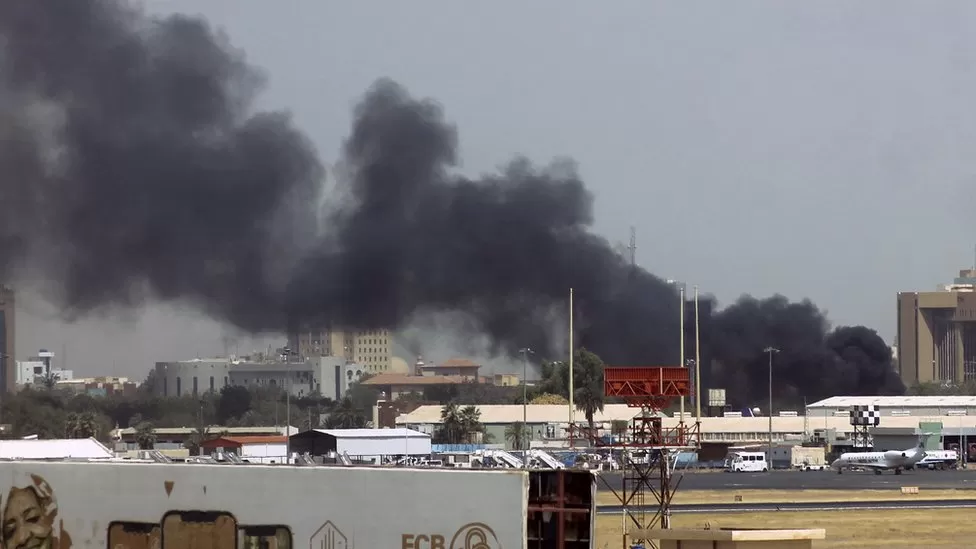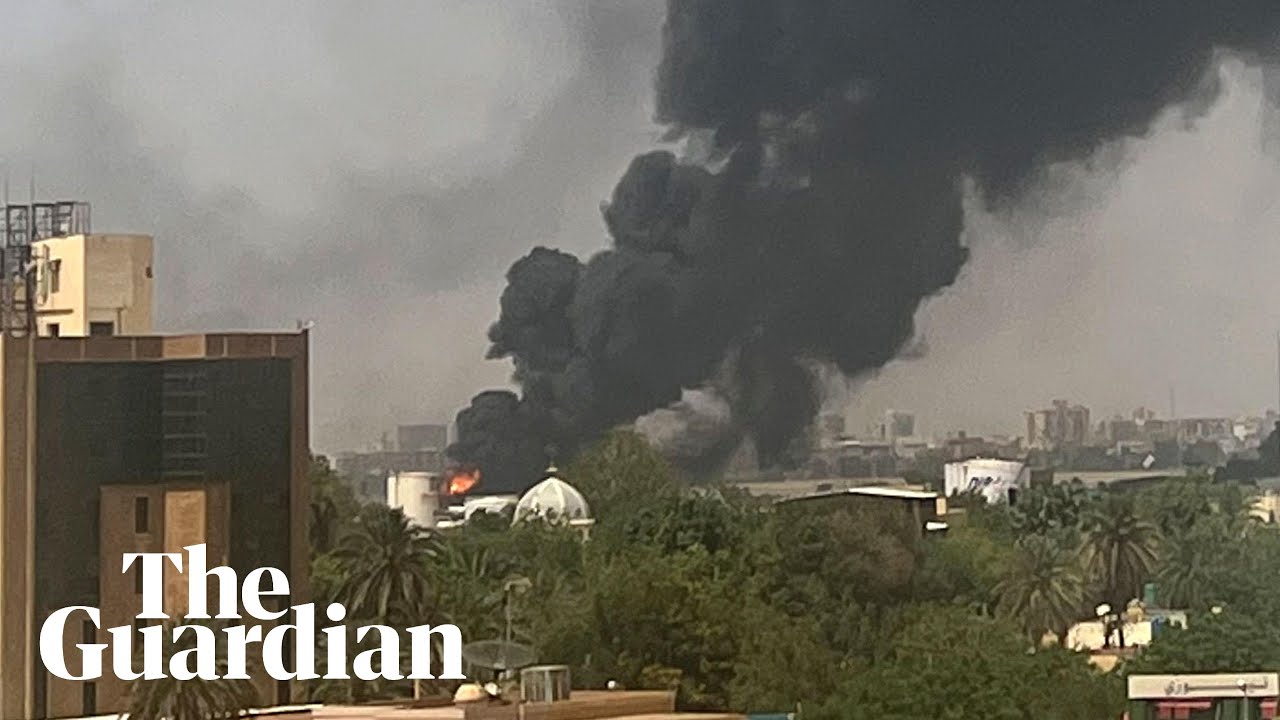Sudan's Army And RSF Doing Battle, Leaving 56 Civilians Dead
Sudan's army and RSF doing battle in a state of political unrest since the ousting of former President Omar al-Bashir in 2019. The recent clashes between the army and the Rapid Support Forces (RSF) have resulted in the death of 56 civilians and the displacement of thousands of others.
Author:Suleman ShahReviewer:Han JuApr 17, 202364.9K Shares865.8K Views

Sudan's army and RSF doing battlein a state of political unrest since the ousting of former President Omar al-Bashir in 2019.
The recent clashes between the army and the Rapid Support Forces (RSF) have resulted in the death of 56 civilians and the displacement of thousands of others.
The fighting, which began on Monday, escalated rapidly, with both sides using heavy weapons and armored vehicles.
Cause Of The Conflict
The conflict between the army and RSF centers on control of the city of El Geneina, the capital of West Darfur state. The RSF is a paramilitary group that is accused of carrying out atrocities in the Darfur region, including ethnic cleansing and war crimes.
The group is believed to have links to the previous regime and has been accused of carrying out attacks against civilians.
The army, which is now in power, has been trying to disarm the RSF and bring them under its control. The RSF, however, has resisted these efforts and has continued to operate independently, leading to clashes between the two groups.
Aftermath Of Army And RSF Battle
The clashes between the army and the RSF have left 56 civilians dead and more than 160 others injured. The United Nations has expressed concern about the situation and has called for an immediate end to the violence.
The UN has also warned that the fighting could lead to a humanitarian crisis, with thousands of people being forced to flee their homes.
The Sudanese government has declared a state of emergency in West Darfur and has imposed a curfew in El Geneina. The government has also deployed additional troops to the area to restore order and maintain security.

Fighting between Sudan military rivals breaks out in Khartoum amid power struggle
Uncertain Future
The recent clashes between the army and the RSF have once again highlighted the fragile state of Sudan's transition to democracy. The country is facing multiple challenges, including a struggling economy, ethnic tensions, and a precarious security situation.
The Sudanese government must take immediate action to address the underlying issues that have led to the conflict in West Darfur. This includes disarming the RSF and bringing them under the control of the army, as well as addressing the root causes of the conflict, such as ethnic tensions and land disputes.
The international community also has a role to play in supporting Sudan's transition to democracy and promoting peace and stability in the country.
The UN and other organizations must work with the Sudanese government to address the humanitarian needs of those affected by the conflict and to promote reconciliation and lasting peace.
The recent clashes in West Darfur highlight the challenges that Sudan faces as it tries to transition to democracy. The government and the international community must work together to address the underlying issues that have led to the conflict and to promote peace and stability in the country.
Final Words
The situation in Sudan remains tense, with the army and RSF seemingly locked in a power struggle that shows no signs of abating. The international community has called for an end to the violence and for both sides to engage in dialogue to resolve their differences.
It remains to be seen whether the army and RSF will heed these calls and work towards a peaceful resolution of the crisis. In the meantime, the people of Sudan continue to suffer the consequences of this ongoing conflict.

Suleman Shah
Author
Suleman Shah is a researcher and freelance writer. As a researcher, he has worked with MNS University of Agriculture, Multan (Pakistan) and Texas A & M University (USA). He regularly writes science articles and blogs for science news website immersse.com and open access publishers OA Publishing London and Scientific Times. He loves to keep himself updated on scientific developments and convert these developments into everyday language to update the readers about the developments in the scientific era. His primary research focus is Plant sciences, and he contributed to this field by publishing his research in scientific journals and presenting his work at many Conferences.
Shah graduated from the University of Agriculture Faisalabad (Pakistan) and started his professional carrier with Jaffer Agro Services and later with the Agriculture Department of the Government of Pakistan. His research interest compelled and attracted him to proceed with his carrier in Plant sciences research. So, he started his Ph.D. in Soil Science at MNS University of Agriculture Multan (Pakistan). Later, he started working as a visiting scholar with Texas A&M University (USA).
Shah’s experience with big Open Excess publishers like Springers, Frontiers, MDPI, etc., testified to his belief in Open Access as a barrier-removing mechanism between researchers and the readers of their research. Shah believes that Open Access is revolutionizing the publication process and benefitting research in all fields.

Han Ju
Reviewer
Hello! I'm Han Ju, the heart behind World Wide Journals. My life is a unique tapestry woven from the threads of news, spirituality, and science, enriched by melodies from my guitar. Raised amidst tales of the ancient and the arcane, I developed a keen eye for the stories that truly matter. Through my work, I seek to bridge the seen with the unseen, marrying the rigor of science with the depth of spirituality.
Each article at World Wide Journals is a piece of this ongoing quest, blending analysis with personal reflection. Whether exploring quantum frontiers or strumming chords under the stars, my aim is to inspire and provoke thought, inviting you into a world where every discovery is a note in the grand symphony of existence.
Welcome aboard this journey of insight and exploration, where curiosity leads and music guides.
Latest Articles
Popular Articles